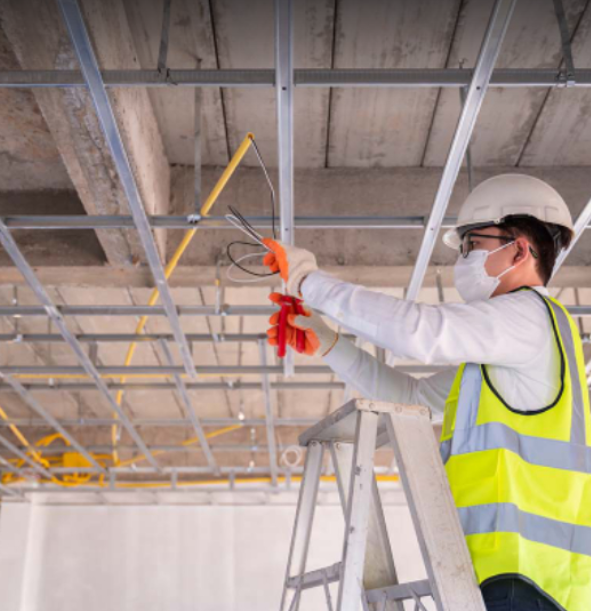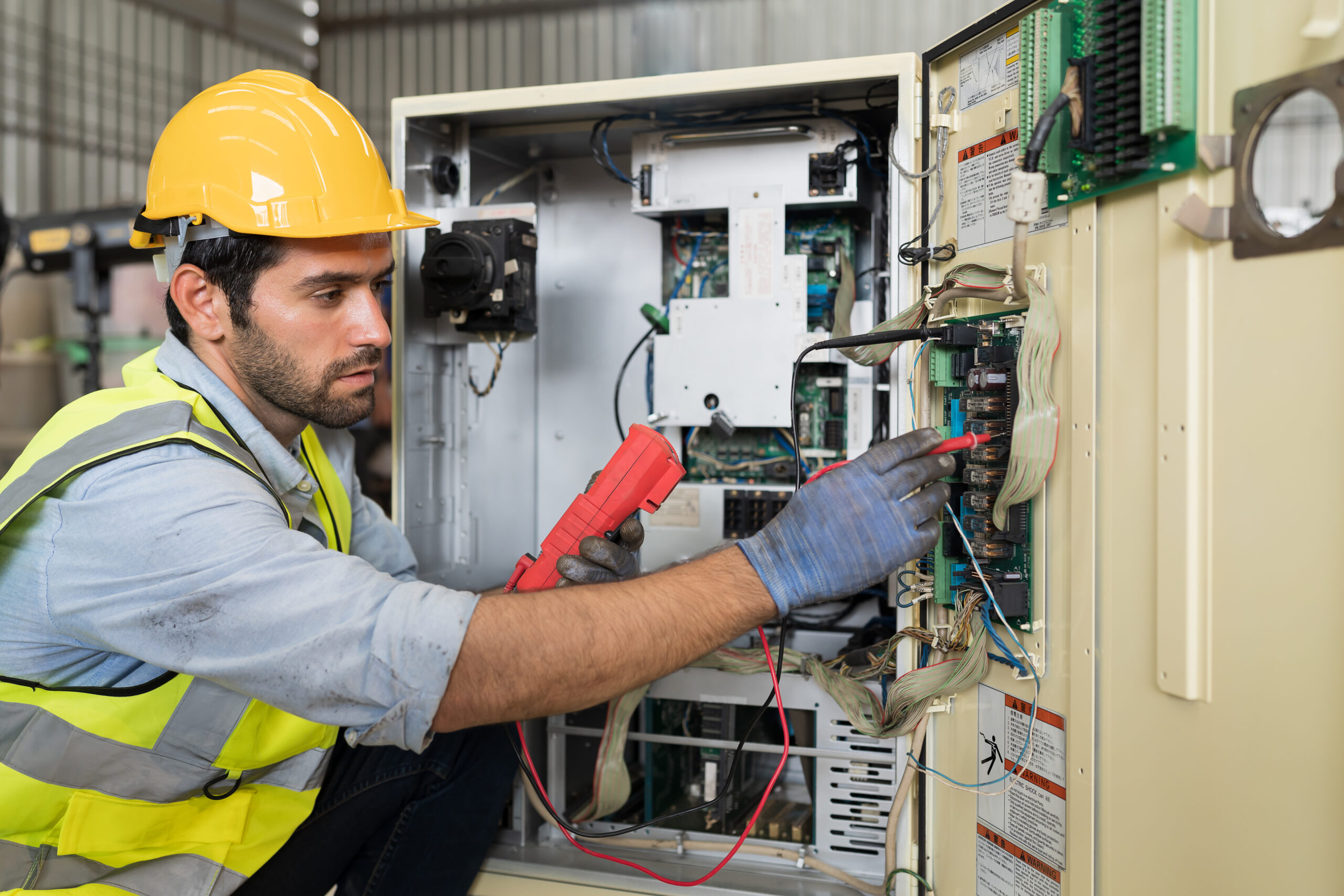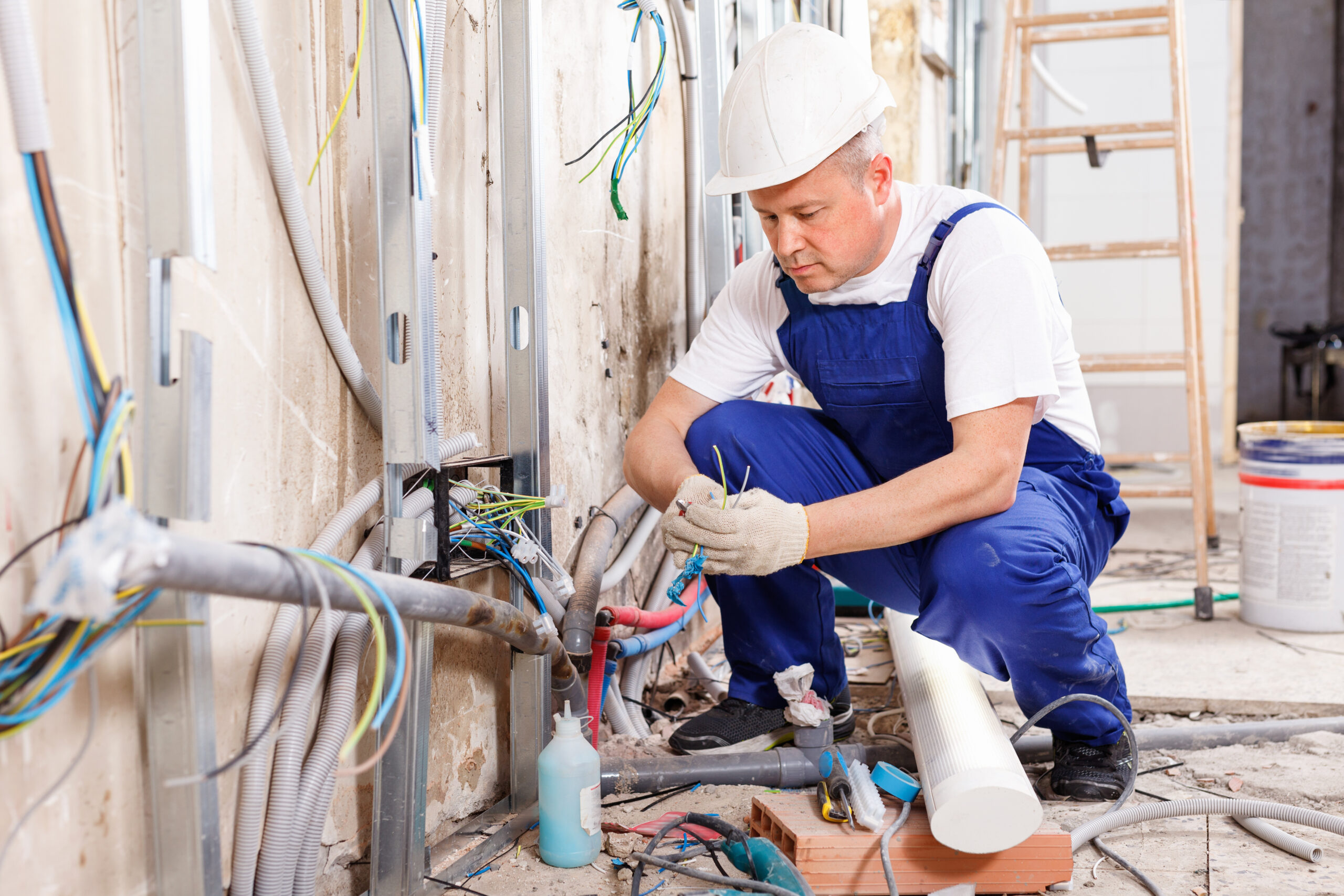The construction industry is a complex and dynamic field that relies heavily on the expertise of various professionals to bring projects to life. Among these, electrical professionals play a pivotal role in ensuring that buildings are not just structurally sound but also equipped with the essential power infrastructure to function efficiently. In this blog post, we will delve into the indispensable contributions of electrical professionals in construction and highlight the key aspects that make their role crucial for the success of any project.

The Evolution of Electrical Systems in Construction:
Before we explore the contemporary significance of electrical professionals in construction, it’s essential to reflect on the historical evolution of electrical systems within the industry. In the early days of construction, electrical systems were rudimentary and primarily focused on basic lighting and power needs. As technology advanced, the demand for more sophisticated electrical solutions grew, leading to the development of intricate electrical systems that power everything from lighting and HVAC systems to complex machinery in modern buildings.
Today, electrical professionals in construction are at the forefront of implementing cutting-edge technologies such as smart building systems, renewable energy integration, and advanced automation. The evolution of electrical systems has transformed construction sites into hubs of innovation, with professionals constantly adapting to emerging trends and ensuring that projects are not only functional but also sustainable and energy-efficient.
Key Responsibilities of Electrical Professionals in Construction:
Design and Planning:
- Electrical professionals are involved in the early stages of construction projects, contributing to the design and planning phases. They collaborate with architects, engineers, and other stakeholders to determine the electrical requirements of a building. This includes deciding on the placement of electrical outlets, lighting fixtures, and power distribution systems. Their expertise ensures that the electrical infrastructure aligns with the overall design and functionality of the structure.
Installation and Wiring:
- Once the design is finalized, electrical professionals oversee the installation and wiring of electrical components. This involves working with a variety of materials, such as conduits, cables, and wiring systems, to establish a safe and efficient electrical network. Attention to detail is crucial during this phase, as any errors or oversights can have serious consequences for the functionality and safety of the building.
Compliance with Codes and Regulations:
- Electrical professionals must stay abreast of local, national, and international electrical codes and regulations. Ensuring that construction projects comply with these standards is not only a legal requirement but also essential for the safety of occupants and the longevity of the structure. Electrical professionals play a critical role in guaranteeing that all electrical work meets or exceeds the prescribed codes and regulations.
Integration of Advanced Technologies:
- With the rise of smart buildings and intelligent systems, electrical professionals are increasingly tasked with integrating advanced technologies into construction projects. This includes implementing home automation systems, energy management solutions, and other smart features that enhance the overall efficiency and sustainability of buildings. The ability to adapt to and implement these innovations is a testament to the versatility of electrical professionals in the construction industry.
Maintenance and Troubleshooting:
- Beyond the completion of a construction project, electrical professionals are often involved in ongoing maintenance and troubleshooting. They conduct routine inspections, identify potential issues, and perform repairs or upgrades as needed. This proactive approach to maintenance ensures that electrical systems continue to operate optimally, minimizing downtime and reducing the risk of electrical failures.
Challenges Faced by Electrical Professionals:
While electrical professionals play a crucial role in the success of construction projects, they also encounter several challenges that require skill, experience, and adaptability to overcome. Some of the common challenges include:
Technological Advancements:
- The rapid pace of technological advancements presents both opportunities and challenges for electrical professionals. Staying updated with the latest technologies and understanding how to integrate them into construction projects requires continuous learning and professional development.
Safety Concerns:
- Working with electricity inherently involves risks, and ensuring the safety of both workers and occupants is paramount. Electrical professionals must adhere to strict safety protocols, use appropriate personal protective equipment (PPE), and implement measures to mitigate potential hazards.
Regulatory Compliance:
- The ever-evolving landscape of electrical codes and regulations means that professionals need to stay informed about changes in standards. Keeping projects compliant with these regulations is a constant challenge that demands meticulous attention to detail.
Project Management:
- Electrical professionals often work within the larger framework of construction projects, and effective project management is crucial for success. Coordinating with other construction professionals, managing timelines, and addressing unforeseen challenges are integral aspects of their role.
The Future of Electrical Professionals in Construction:
As the construction industry continues to evolve, the role of electrical professionals is expected to become even more vital. Several trends are shaping the future of the industry, and electrical professionals are well-positioned to contribute significantly to these developments:
Renewable Energy Integration:
- The global push towards sustainability has led to increased emphasis on renewable energy sources. Electrical professionals will play a crucial role in integrating solar panels, wind turbines, and other renewable energy technologies into construction projects, making buildings more environmentally friendly and reducing reliance on traditional power sources.
Smart Building Technologies:
- The proliferation of smart building technologies is transforming the way we interact with the spaces we inhabit. Electrical professionals will be at the forefront of implementing and managing these technologies, including smart lighting systems, energy-efficient HVAC systems, and automated building controls.
Energy Storage Solutions:
- As energy storage technologies advance, electrical professionals will be responsible for incorporating efficient and reliable energy storage solutions into construction projects. This will contribute to the stability of electrical grids and enhance the resilience of buildings, especially in the face of power outages or fluctuations.
Electrification of Transportation:
- The electrification of transportation, including electric vehicles (EVs) and charging infrastructure, is a growing trend. Electrical professionals will be instrumental in designing and implementing the necessary electrical infrastructure to support widespread adoption of electric transportation, both in residential and commercial settings.
Frequently Asked Questions
- Why is electrical work important in construction?
Electrical work is an indispensable facet of civil construction, providing the lifeblood of power and illumination essential for the efficient operation and safety of buildings and structures. - Is electrical part of the construction industry?
There are lots of complex processes in construction, and one of the leading ones is electrical works. It is a job that entails serious work on the outside, such as cable pulling, and multi-circuit installations on the inside. - What is the purpose of electrical services?
Safety: Electrical services play a critical role in ensuring the safety of individuals and properties. Proper installation, maintenance, and repair of electrical systems help prevent electrical accidents, fires, and electrical shock hazards.
Conclusion:
In conclusion, electrical professionals in construction play an indispensable role in shaping the modern built environment. From the initial design phases to ongoing maintenance and adaptation to emerging technologies, their expertise ensures that buildings are not just structures but functional, safe, and sustainable spaces. As the construction industry continues to evolve, the importance of electrical professionals is set to grow, driving innovation and contributing to a future where buildings are not only powered efficiently but also aligned with the principles of sustainability and smart living.





